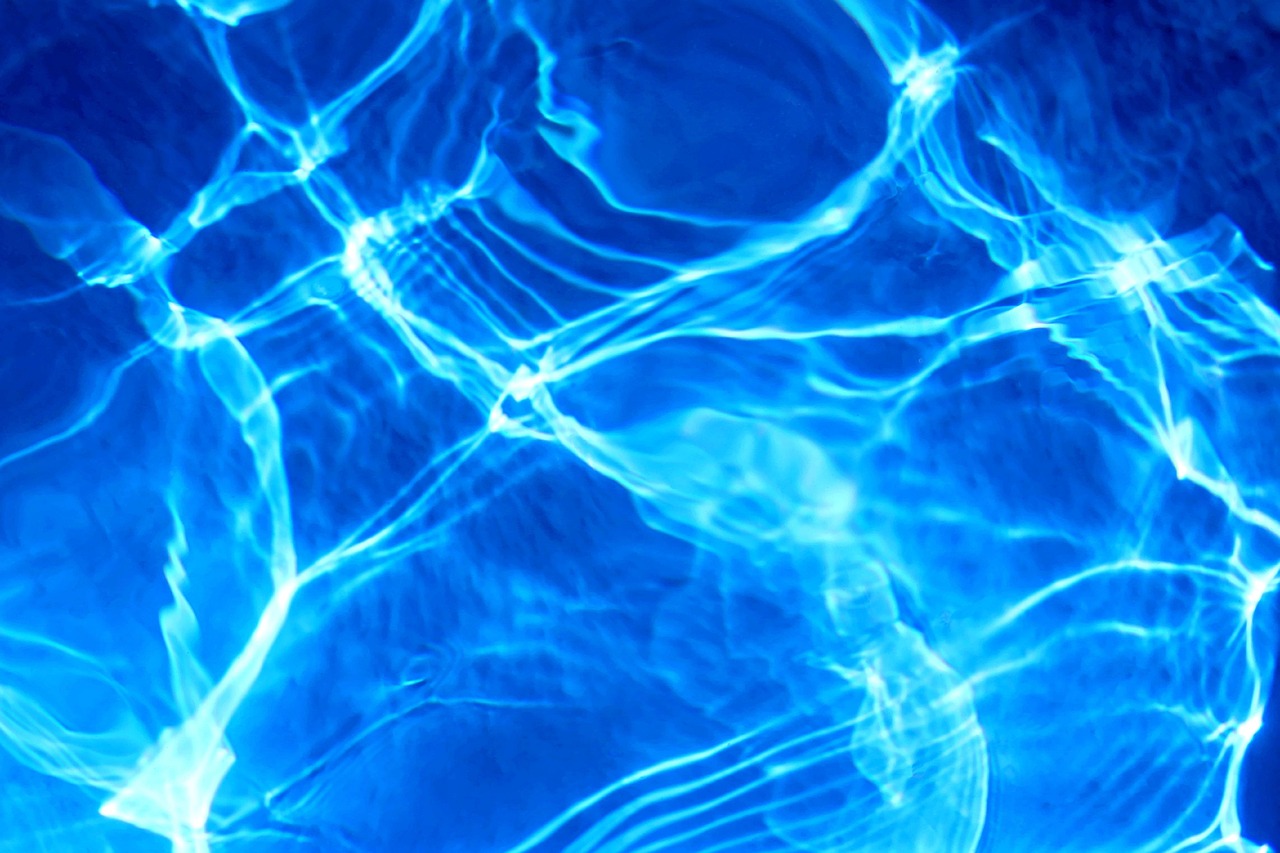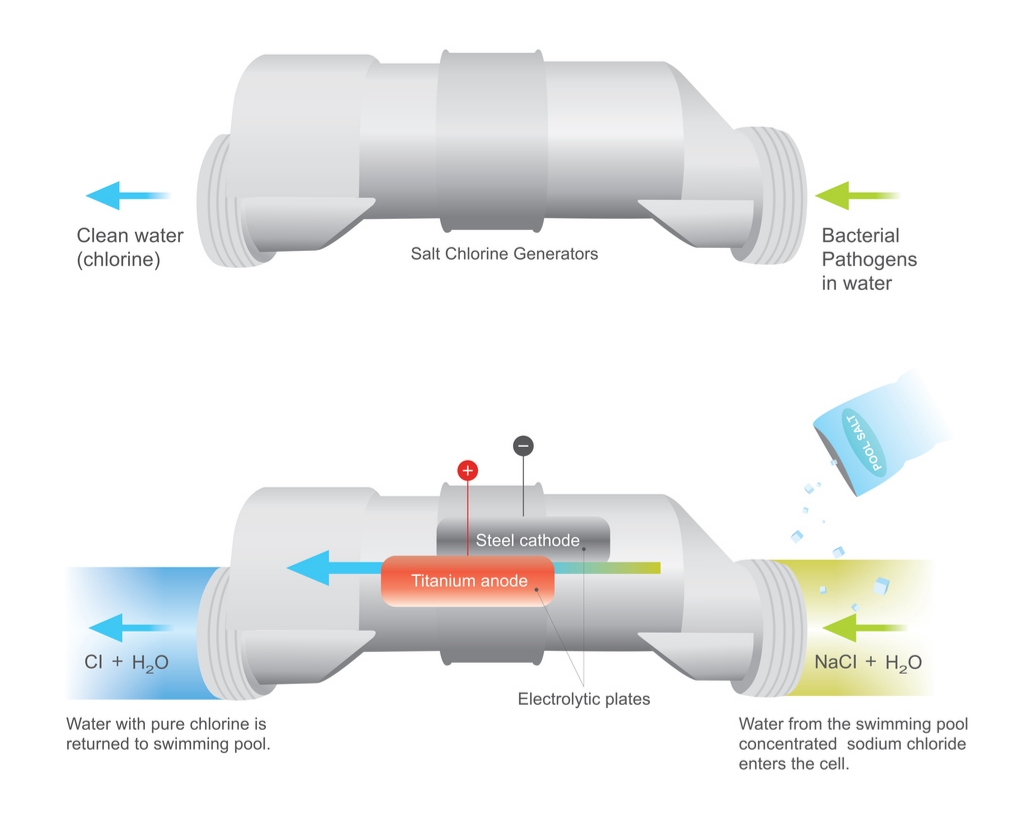Soft, Sparkling Water: Understanding the Saltwater Pool Revolution

Saltwater pools have surged in popularity as more and more people discover the benefits of softer water, reduced chemical handling, and consistent sanitation. But what exactly is a saltwater generator, and does it really mean you'll be saying goodbye to chlorine for good? In this article, we'll clear up common misconceptions, explain how salt chlorination works, and discuss whether a salt system is right for you.
How a Saltwater Generator Works

Despite the name, saltwater pools aren't chlorine-free. Instead of manually adding chlorine, you dissolve salt into the pool and let a device called a saltwater generator (or salt chlorinator) do the work. Through a process called electrolysis, the generator converts salt into chlorine, which then circulates through the water, killing bacteria and algae.
The amount of salt required is relatively low - typically 2,500 to 3,500 parts per million (ppm) - meaning the water doesn't taste like the ocean. In fact, saltwater pool water often feels silkier and gentler on skin and eyes compared to traditional chlorinated water.
Benefits of Salt Chlorination
Many pool owners are drawn to salt systems because they want to reduce direct handling of chemicals. Manually adding chlorine can be messy and potentially hazardous if not done correctly, whereas a salt generator automates much of the process. You may also notice less of the pungent “chlorine smell” because the constant generation of free chlorine helps keep chloramine levels in check.
Factors to Consider Before Switching
Initial Installation Cost
A saltwater generator and the required installation can be a significant upfront expense, though many find that reduced chemical costs offset this over time.
Corrosion Concerns
Salt can accelerate corrosion of metal parts or natural stone if not properly managed, especially around coping or ladder anchors. Sealing metal fittings and using coatings can mitigate this risk.
Maintenance
Salt cells need periodic cleaning to remove scale, especially in areas with hard water. You'll also need to monitor salt levels to ensure optimal performance.
Basic Maintenance and Operation
To keep your saltwater generator running smoothly, check the salt cell every few months for scale buildup, soak it in a mild acid solution when needed, and verify that the salt concentration remains in the recommended range. Regularly test and balance pH, alkalinity, and calcium hardness - saltwater doesn't eliminate the need for good chemistry, it simply automates chlorine addition.
Benefits Most from a Salt System?
Saltwater pools appeal to those who want a more hands-off approach to sanitizer management, have sensitive skin or eyes, or are looking for a smoother swimming experience. If you host lots of pool parties, the system's constant chlorine generation helps handle increased bather loads without frequent manual dosing.
Salt chlorination offers a compelling blend of convenience and comfort. While there's an upfront cost and some ongoing maintenance, many pool owners love the softer feel, consistent sanitation, and lower reliance on traditional chlorine products. If you're prepared to handle a bit of extra care for your salt cell and keep an eye on salt levels, a saltwater generator could be the perfect upgrade for your backyard oasis.
